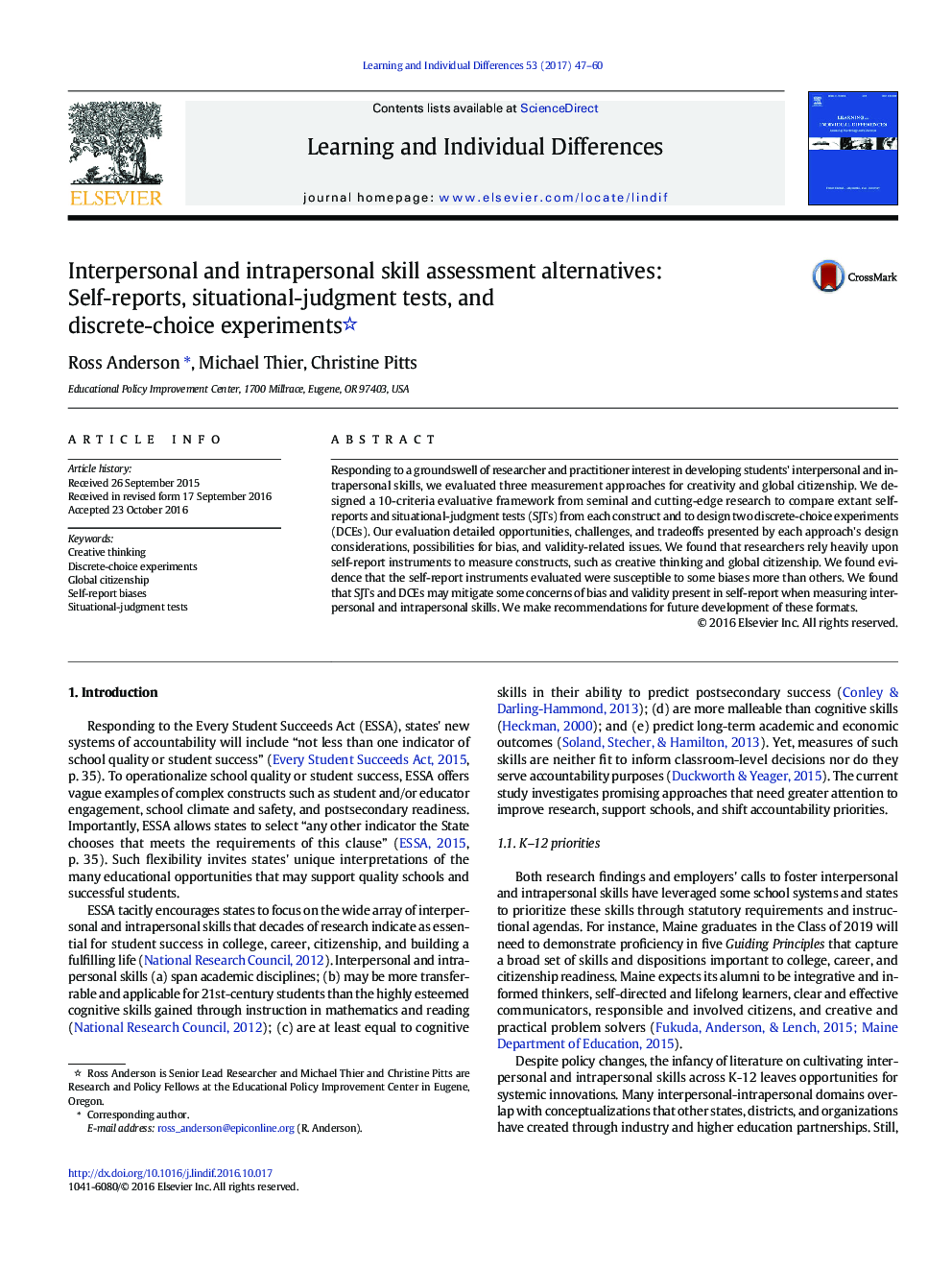| Article ID | Journal | Published Year | Pages | File Type |
|---|---|---|---|---|
| 4940179 | Learning and Individual Differences | 2017 | 14 Pages |
â¢Our literature search demonstrated the saturation of self-report measures across multiple fields and constructs.â¢We generated a 10-criteria evaluative framework to evaluate measures of interpersonal and intrapersonal skills.â¢We detailed opportunities, challenges, and trade-offs presented found for each of the three approaches.â¢We provided examples of technical and conceptual recommendations for future development of DCEs in practice.â¢We found that SJTs and DCEs showed promise in mitigating some concerns of bias and validity present in self-report.
Responding to a groundswell of researcher and practitioner interest in developing students' interpersonal and intrapersonal skills, we evaluated three measurement approaches for creativity and global citizenship. We designed a 10-criteria evaluative framework from seminal and cutting-edge research to compare extant self-reports and situational-judgment tests (SJTs) from each construct and to design two discrete-choice experiments (DCEs). Our evaluation detailed opportunities, challenges, and tradeoffs presented by each approach's design considerations, possibilities for bias, and validity-related issues. We found that researchers rely heavily upon self-report instruments to measure constructs, such as creative thinking and global citizenship. We found evidence that the self-report instruments evaluated were susceptible to some biases more than others. We found that SJTs and DCEs may mitigate some concerns of bias and validity present in self-report when measuring interpersonal and intrapersonal skills. We make recommendations for future development of these formats.
